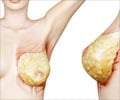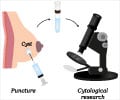Scandal concerning a French manufacturer of breast implants is pelting as an international health fright but one marked by disarray among countries wondering how to respond.

France, Germany and the Czech Republic have recommended that the devices be removed as a precaution but Britain has said it will not follow suit.
Thirteen countries in Europe and Latin America have urged women to have a checkup. In two of them of them -- Bolivia and Venezuela --- the state is offering operations to have the implants removed, but has not made this a recommendation.
In contrast, Australia says it found no evidence that the implants posed a risk.
More than 450 lawsuits have been filed in three countries, and French police have placed PIP and its founder Jean-Claude Mas, 72, under investigation.
At the heart of the scandal is the discovery that PIP used an illegal industrial-grade gel that, according to French investigators, has led to abnormally high rates of ruptured implants.
Advertisement
With almost every day that passes, France has been stunned by new chapters in a story that appears to touch on a years-long, systematic fraud.
Advertisement
He referred to inspections of the company's headquarters in 2010 that led to PIP, at the time the world's third biggest implant maker, being closed down and its products banned.
Mas -- a former pharmaceutical salesman described by his lawyer as having "very limited scientific training" -- intentionally switched the gel and hoodwinked quality inspectors in order to boost profits, according to the investigation.
"I knew that the gel wasn't approved, but I did it knowingly, because the PIP gel was cheaper... and of much better quality," he said, according to minutes of a police interview conducted in October seen by AFP.
In 1993, two years after the company was founded, he ordered employees to tell TUeV -- the prestigious German quality-control agency tasked with monitoring the implants' standards -- that PIP used a surgery-grade American gel called Nusil, rather than a industrial-grade product that was seven times cheaper.
The switch meant PIP made an additional 10 euros (12 dollars) per implant, making the company an extra profit of a million euros (1.2 million dollars) per year on annual production of 100,000 implants, according to former technical director Thierry Brinon, in testimony to investigators.
"TUeV used to announce its visit 10 days in advance," Mas said. "It was a routine thing, I would give orders to hide all the documents connected with the non-approved PIP gel and the employees would take care to ensure that containers (of the gel) were out of sight."
These disclosures have unleashed a fierce debate over how the trick evaded official scrutiny.
French Health Minister Xavier Bertrand pointed the finger at loopholes in European-wide legislation covering "medical devices," a category that includes breast implants.
"A simple label (of quality) is not enough," he said.
"I want to see changes in European regulation because unlike with drugs, which must be authorised to be put on the market, there is none with medical devices," he said.
"There needs to be authorisation for sale, firstly for products that have a potential health risk," Bertrand said, calling also for a toughening of testing procedures.
Douglas McGeorge, a British consultant plastic surgeon, cautioned that harder regulation was in itself no guarantee against scofflaws.
"Inevitably, if you have a major fraud like this you have to look at the process and decide whether it was robust enough," he told AFP.
"There were obvious failings in that process and they have to come up with a way that you can't bypass the process in the future. But you can't legislate for individuals. A bad apple will always find a way around the system."
Source-AFP









